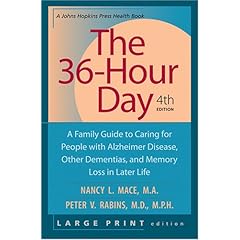 Under the FDA Modernization Act of 1997, the Fast Track designation program is intended to facilitate the development and expedite review of drugs developed for the treatment of serious or life-threatening conditions and that demonstrate the potential to address an unmet medical need for such a condition.
Under the FDA Modernization Act of 1997, the Fast Track designation program is intended to facilitate the development and expedite review of drugs developed for the treatment of serious or life-threatening conditions and that demonstrate the potential to address an unmet medical need for such a condition.Neurochem to meet with FDA to discuss statistical models for the completed North American Phase III clinical trial
LAVAL, QC, July 24 /PRNewswire-FirstCall/ - Neurochem Inc. announces that the U.S. Food and Drug Administration (FDA) has designated the investigational product candidate, tramiprosate (ALZHEMED(TM)), as a Fast Track Product for the treatment of Alzheimer's disease.
Under the FDA Modernization Act of 1997, the Fast Track designation program is intended to facilitate the development and expedite review of drugs developed for the treatment of serious or life-threatening conditions and that demonstrate the potential to address an unmet medical need for such a condition.
As previously announced, Neurochem requested a meeting with the FDA, which is now scheduled for August 2007 with the Division of Neurology Products. The goal of this meeting is to have a discussion on the tramiprosate (ALZHEMED(TM)) Phase III program and present an update on the work accomplished to date on the North American Phase III clinical trial. Neurochem will also seek FDA's feedback and validation on the next steps that would be acceptable to the agency especially with respect to the statistical models. In relation to the ongoing European Phase III clinical trial, patient screening activities will stop in August as Neurochem has exceeded its original patient enrolment objectives. However, in light of the information and experience gained from the North American Phase III clinical trial, Neurochem is presently considering modifications that would need to be made to the design of the European trial.
About Alzheimer's disease
AD is a leading cause of death in older people. The disease is characterized by the progressive death of nerve cells in the brain, making it difficult for the brain's signals to be transmitted properly. A person with AD experiences problems with memory, judgment, thinking, and eventually with motor functions, all of which make it difficult for the person to participate in daily activities.
According to the U.S. Alzheimer Association (2007), there are now more than five million people in the United States living with Alzheimer's disease. This number includes 4.9 million people aged 65 and older. It also includes at least 200,000 individuals younger than 65 with early-onset Alzheimer's disease. In 2000, there were an estimated 411,000 new cases of Alzheimer's disease. That number is expected to increase to 454,000 new cases a year by 2010, 615,000 new cases a year by 2030 and 959,000 new cases a year by 2050. The direct and indirect costs of AD and other dementias amount to more than US$148 billion annually.
About Neurochem
Neurochem Inc. is focused on the development and commercialization of innovative therapeutics to address critical unmet medical needs. Eprodisate (KIACTA(TM)) is currently being developed for the treatment of Amyloid A (AA) amyloidosis, and is under regulatory review for marketing approval by the United States Food and Drug Administration, European Medicines Agency and Swissmedic. Tramiprosate (ALZHEMED(TM)), for the treatment of Alzheimer's disease, has completed a Phase III clinical trial in North America and is currently in a Phase III clinical trial in Europe, while tramiprosate (CEREBRIL(TM)), for the prevention of Hemorrhagic Stroke caused by Cerebral Amyloid Angiopathy, has completed a Phase IIa clinical trial.
To Contact Neurochem
For additional information on Neurochem and its drug development programs, please call the North American toll-free number 1 (877) 680-4500 or visit our Web site at www.neurochem.com.
This news release contains forward-looking statements regarding tramiprosate (ALZHEMED(TM)) as well as regarding continuing and further development efforts. These statements are based on the current analysis and expectations of management. Drug development necessarily involves numerous risks and uncertainties, which could cause actual results to differ materially from this current analysis and these expectations. Analysis regarding the results of clinical trials may not provide definitive results regarding safety, tolerability or therapeutic benefits. Even if all the endpoints sought in the clinical trials were met (which is not certain), there is no certainty that regulators would ultimately approve tramiprosate (ALZHEMED(TM)) for sale to the public. Risks and uncertainties may include: failure to demonstrate the safety, tolerability and efficacy of our product, that actual results may vary once the final and quality-controlled verification of data and analyses has been completed, the expense and uncertainty of obtaining regulatory approval, including from the FDA, and the possibility of having to conduct additional clinical trials. Further, even if regulatory approval is obtained, therapeutic products are generally subject to: stringent on-going governmental regulation, challenges in gaining market acceptance, and competition. Neurochem does not undertake any obligation to publicly update its forward-looking statements, whether as a result of new information, future events, or otherwise. Please see the Annual Information Form for further risk factors that might affect the Company and its business.
For further information:
Lise Hebert, Ph.D.
Vice President, Corporate Communications
Tel: (450) 680-4570
lhebert@neurochem.com



